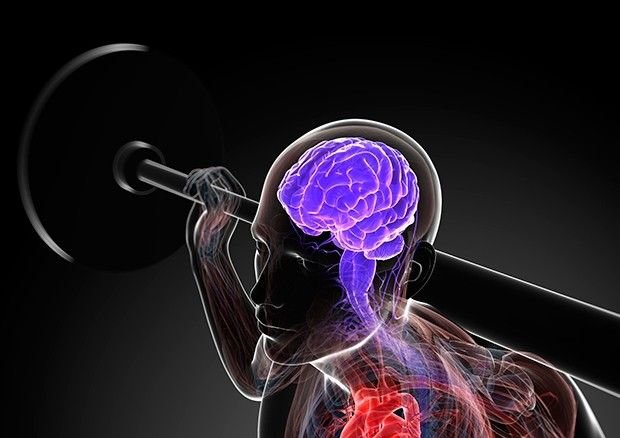Mind Muscle Connection: Enhancing Workouts for Better Results

Mind-Muscle Connection: Maximizing Your Workouts for Better Results
When we train, we consider many variables: our training split, frequency, number of exercises, reps, sets for volume and intensity, form, and range of motion. However, one crucial training variable often overlooked is the mind-muscle connection. This invisible factor, which only you can measure by feeling, plays a vital role in maximizing your workouts. Understanding and developing this connection can lead to significant improvements in muscle growth, strength, and overall performance. By incorporating the mind-muscle connection into your training, you can unlock your full potential and achieve your fitness goals more effectively.
Understanding the Mind-Muscle Connection
The mind-muscle connection refers to the brain’s ability to send electrical signals through the central nervous system to skeletal muscles, instructing them to contract. According to the Journal of Strength and Conditioning Research, actively focusing on the muscles you’re working improves the quality of each contraction, which can result in better exercise performance and muscle development. The efficiency of this connection determines the speed, power, and effectiveness of muscle contractions. When you consciously focus on the muscle you’re working, you enhance the quality of each contraction, which can result in better exercise performance and muscle development.
Research has shown that focused mental engagement can significantly enhance muscle activation. Studies demonstrate that verbal cues and mental focus can increase muscle activity during exercises by a substantial margin. This highlights the importance of not just going through the motions, but actively engaging with the muscles you’re working to maximize their recruitment.
For instance, when performing a bicep curl, it’s not just about lifting the weight from point A to point B. By actively thinking about the biceps as they contract, you can increase the recruitment of muscle fibers and intensify the contraction. This heightened focus ensures that the targeted muscle is doing the majority of the work, rather than allowing other muscles to compensate, which can often happen during exercises.
Why This Connection Matters
Even with perfect training variables—ideal splits, volume, intensity, and form—if you’re not mentally present and focused on muscle contractions, you won’t get the most out of your workout. Proper form alone does not guarantee a strong mind-muscle connection. Distractions, like thinking about work or listening to music, can hinder this connection, reducing the effectiveness of each rep.
The mind-muscle connection is crucial because it transforms a mechanical movement into a purposeful one. By directing your attention to the muscle you’re working, you can maximize muscle activation, leading to improved strength and muscle growth. This focused approach, as highlighted by Harvard Health Publishing, also helps prevent injuries by ensuring that you maintain control over your movements, reducing the risk of strain or improper technique.
How to Develop a Strong Connection
Visualize the Set
Before starting a set, take a moment to visualize the exercise. Visualization is supported by neuroscience studies published in Frontiers in Psychology, which show that imagining movements enhances motor control and muscle activation. Picture the movement in your mind, paying attention to the muscles that are the primary movers and those that stabilize the exercise. Consider where the tension will be, the speed of the concentric (lifting) phase, and the slowness of the negative (lowering) phase. Visualization primes your mind to focus on the task at hand, enhancing your ability to connect with the muscles you’re targeting.
Minimize Distractions
In today’s world, it’s common to train while listening to music or checking your phone between sets. However, distractions can dilute the mind-muscle connection. Consider removing earbuds or setting aside counting reps temporarily. While tracking progress is important, sometimes it’s beneficial to focus entirely on the mind-muscle connection. By eliminating distractions, you create a mental environment that fosters concentration and enhances muscle engagement.
Execute with Focus
After visualization, perform the set exactly as you imagined. Stay present and concentrate on the muscle contractions. As you lift and lower the weight, maintain an acute awareness of the muscle you’re working. Feel the tension build and release with each repetition. This focused execution ensures that every movement is deliberate and controlled, maximizing the benefits of the exercise. Using lighter weights can also help you maintain this focus, as heavy weights might shift your attention to just completing the lift rather than on the quality of the contraction.
The Benefits of a Strong Connection
Beginners and those needing improvement in their mind-muscle connection will notice increased benefits from each rep and set. You’ll feel the burn more intensely in your muscles, even with the same or fewer reps, because your muscles are contracting harder. Over time, this leads to greater muscle growth, strength, and improved movement efficiency.
A well-developed mind-muscle connection also enhances neuromuscular coordination, which is crucial for complex movements and athletic performance. As your ability to control muscle contractions improves, you’ll experience increased strength and power in your lifts. Additionally, this connection aids in preventing muscle imbalances, as you become more attuned to the specific muscles being worked during each exercise. The American College of Sports Medicine (ACSM) emphasizes that strengthening the mind-muscle connection reduces the risk of injury by ensuring proper movement mechanics.
Mental Benefits and Life Applications
Beyond physical benefits, the mind-muscle connection cultivates mental discipline and focus. The practice of directing your attention to the present moment and the task at hand carries over into other areas of life, promoting mindfulness and reducing stress.
Applying This Connection to Any Exercise
Weightlifting
In weightlifting, the mind-muscle connection can significantly impact performance. Strength and Conditioning Journal highlights that focusing on the specific muscles being targeted, you can ensure that each lift is as effective as possible. Whether you’re performing a squat, deadlift, or bench press, directing your attention to the engaged muscles maximizes muscle recruitment and enhances strength gains.
Calisthenics
Calisthenics, which involves using body weight for resistance, also benefits greatly from a strong mind-muscle connection. Exercises like push-ups, pull-ups, and planks require precise muscle activation to maintain form and maximize effectiveness. By concentrating on the muscles involved, you can improve your technique and achieve better results.
Gymnastics
Gymnasts rely heavily on the mind-muscle connection to execute complex movements with precision and grace. A study from the Journal of Biomechanics confirms that developing a strong mind-muscle connection enhances coordination and body awareness, which are critical for performing fluid routines with control.
Conclusion: Harnessing the Power of the Mind-Muscle Connection
The mind-muscle connection is a powerful tool that can transform your workouts and elevate your fitness journey. By consciously engaging with the muscles you’re working, you can maximize the effectiveness of each exercise, leading to improved strength, muscle growth, and overall performance.
Developing a strong mind-muscle connection requires practice and patience, but the benefits are well worth the effort. Whether you’re a beginner or an experienced athlete, incorporating this technique into your training routine can enhance your results and help you reach your fitness goals.
Remember, the mind-muscle connection is not just about physical gains; it’s about cultivating mental discipline, focus, and mindfulness. By embracing this approach, you can unlock your full potential and experience the transformative power of intentional training.
Incorporate the mind-muscle connection into your workouts today and discover the profound impact it can have on your fitness journey and beyond. Whether you’re lifting weights, practicing calisthenics, or pursuing other forms of exercise, the mind-muscle connection is your key to unlocking new levels of strength, growth, and success.



